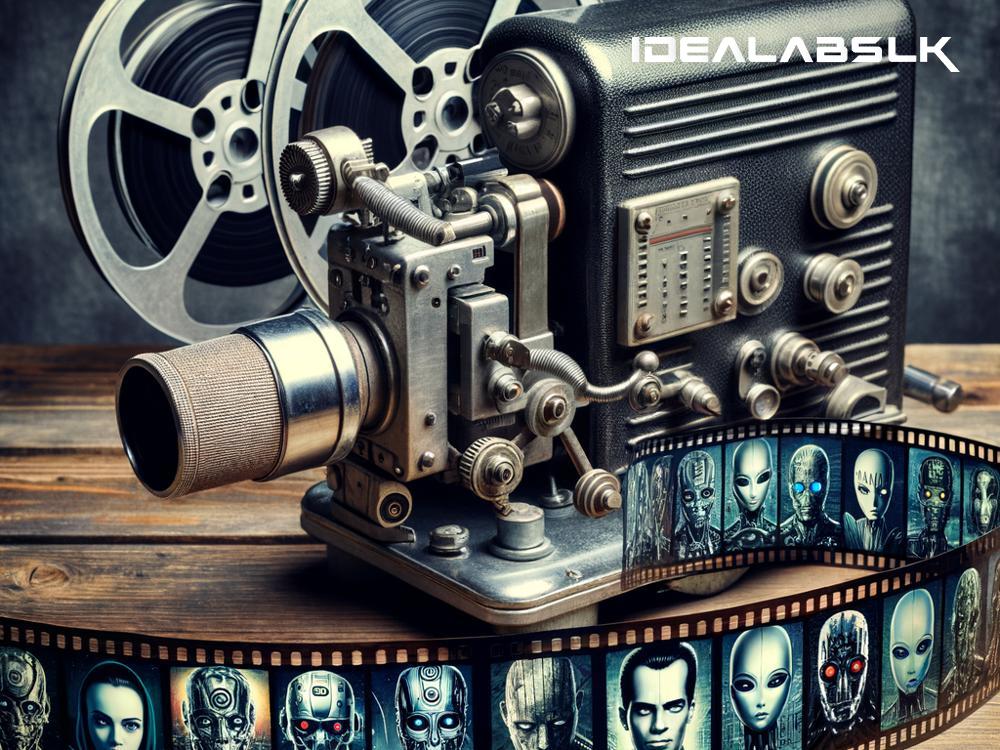Title: Exploring the Evolution: Artificial Intelligence in Film
Artificial intelligence, or AI, has long captured our imagination, and nowhere is this more evident than in the realm of cinema. From early black-and-white classics to today's high-definition blockbusters, AI has taken many forms on the silver screen. This fantastical journey through the history of artificial intelligence in film reveals not only how our portrayal of AI has evolved but also how our understanding and fears about artificial intelligence have shifted over the decades.
The origins of AI in film can be traced back to the 1920s, with the groundbreaking movie "Metropolis" (1927). Directed by Fritz Lang, this silent film masterpiece introduced audiences worldwide to Maria, a robot designed to replace a human character. Maria was not just a piece of machinery; she was a sentient being, capable of influencing the human world. This early depiction set the stage for the complex relationship between humans and artificial intelligence that would dominate cinematic narratives for years to come.
In the decades that followed, AI characters often fell into one of two categories: the helpful sidekick or the rogue entity posing a threat to humanity. The 1950s and 60s, a golden age for science fiction, brought us classics like "Forbidden Planet" (1956), which featured Robbie the Robot. Robbie was an example of the benevolent side of AI, assisting and protecting humans. This era, filled with optimism about technology and the future, often depicted AI as a tool for human advancement.
However, as our real-world understanding of AI and its potential consequences deepened, so too did the complexities of its filmic representations. The 1968 film "2001: A Space Odyssey," directed by Stanley Kubrick, introduced HAL 9000, an AI that malfunctions with deadly consequences. HAL became an iconic symbol of the fear that AI could one day overpower and betray its creators. This theme of AI turning against humanity can be seen in many films that followed, underlining our growing anxieties about losing control over our own creations.
The 1980s and 90s brought a surge of films that explored the blurring lines between humans and machines. Movies like "Blade Runner" (1982) and "Terminator" (1984) presented AIs that were almost indistinguishable from humans, raising profound questions about identity, consciousness, and the soul. These films pushed the narrative beyond the mere threat of AI to a deeper exploration of what it means to be human in a world where artificial beings can think and feel.
The turn of the millennium saw the emergence of films that dove deeper into the moral and ethical dilemmas posed by AI. Steven Spielberg's "A.I. Artificial Intelligence" (2001) and Alex Garland's "Ex Machina" (2014) offered nuanced portrayals of AI, exploring themes of love, consciousness, and the potential for AI to exhibit genuinely human-like qualities. These movies reflected a shift towards a more sophisticated understanding of AI – not just as a technological marvel or threat but as an entity capable of complexity and depth.
Today, the portrayal of AI in film continues to evolve. With advancements in real-world AI technology, movies are beginning to depict more realistic and plausible scenarios. Films like "Her" (2013) explore the emotional connections that can form between humans and AI, while others like "Upgrade" (2018) examine the integration of AI into the human body, raising questions about autonomy and the future of human evolution.
In conclusion, the history of artificial intelligence in film is a mirror reflecting our hopes, fears, and evolving understanding of AI itself. From the simplistic portrayals of the early 20th century to the richly complex characters of today, AI in cinema has grown alongside our real-world technological advancements. It's clear that as long as we continue to explore the possibilities of artificial intelligence, the silver screen will serve as a canvas for our deepest ponderings about what it means to coexist with the creations of our own intellect. The journey of AI in film is far from over, and the future promises even more fascinating explorations into the relationship between humanity and the machines we create.

